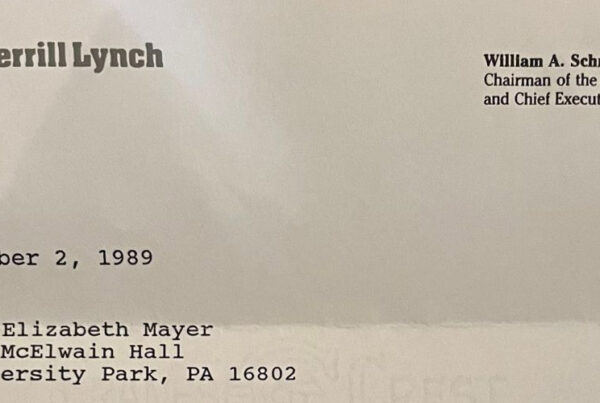
Article Summary: Do you remember the day your best friend was a stranger? Most people cannot. Why? Because that day was like any other day. Of course, no one is a best friend from the first greeting. Relationships take time. The same is true with your best stakeholders (e.g., prospect, boss, staff member, partner, member, sponsor, and so forth). Either a best friend or a best stakeholder today, the relationship started as strangers and likely started with Small Talk. Small talk can be a powerful part of your business relationships. The difference between effective and ineffective small talk is being deliberate. Deliberate small talk contributes to good will, building trust, and better understanding the other person’s personal and professional situations. Successful professionals are well prepared for various types of conversations. Here are three suggestions to make small talk practical and useful.
Business is Personal – 3 Tips to Accelerate Relationship Building with Small Talk
Copyright © 2010. The Chief Storyteller®, LLC. and ThinkBusiness Magazine
Ira J. Koretsky
January 2010
Early in my career, I did not even realize what small talk was or its purpose. I do remember I thought I prepared well for meetings. In reality, I mainly prepared for factual part of the meeting—the conversation related to the actual topic. I did not prepare well for the human side—the relationship building.
Do you remember the day your best friend was a stranger? Most people cannot. Why? Because that day was like any other day. Of course, no one is a best friend from the first greeting.
Relationships take time. The same is true with your best stakeholders (e.g., prospect, boss, staff member, partner, member, sponsor, and so forth). Either a best friend or a best stakeholder today, the relationship started as strangers and started with small talk.
Small talk can be a powerful part of your business relationships. The difference between effective and ineffective small talk is being deliberate. Deliberate small talk contributes to good will, building trust, and better understanding the other person’s personal and professional situations.
Successful professionals are well prepared for various types of conversations. Here are three tips to make small talk practical and useful.
1. Prepare Tailored Questions
Whether you are preparing for a sales meeting, budget request, salary negotiation, and so on, always perform competitive and business intelligence research. This is the most important part of small talk success.
Research both the organization and all of the meeting attendees, especially the key stakeholders. Develop a list of questions relevant to them. Choose the information relevant to your situation.
Develop a list of questions relevant to them.
For the organization, know its products and services, successes, challenges, competitors, and the like. For the attendees, look for genuine connections. Think about common topics of interest such as college, hobbies, charities, where someone grew up, and professional associations.
To help you in your research, consider internal and external searches. Internal searches include website, press releases, annual reports, biographies, and executive interviews. External searches include social media sites (e.g., blogs, Twitter, Facebook, and LinkedIn), magazines, newspapers, journals, and professional research organizations such as Hoovers and Gartner.
2. First Share, Then Pose a Question
Let us use a sales meeting as our example. As soon as you walk into the conference room for your meeting, you learn that Barbara, the CEO, is running late. What do you do? Initiate conversation with the other meeting participants using your tailored questions. Based on your research, share something important about yourself relevant to the attendees you researched. Then ask a related question. By first sharing, you are extending trust.
Examples:
- “Sanjay, I graduated from DEF University with masters in economics in 19XX. I noticed that you went to GHI for your MBA. What did you like the most?”
- “Jason, I am also active in ABC charity in my area. How are your experiences with ABC?”
- “Susana, I read in USA Today about your new approach to process improvement. We did something similar a few years ago. How is your approach progressing?”
The right small talk can uncover information and insights on a variety of personal and professional areas.
3. Gauge Receptivity
Understand and tune into the personalities of the attendees. Does Barbara, Sanjay, Jason, or Susana prefer small talk or business talk (conversation on the actual topic at hand)? Unsure? Dip your toe into the pool. Follow his/her lead. Start-of-meeting small talk should last only a few minutes.
If Barbara does not provide timing cues, transition to business talk within five to seven minutes. Since you did your pre-meeting preparation and research on the organization, your deliberate small talk complements the agenda. Your small talk continues to be relevant and important to the meeting. It establishes your efforts to understand and gain familiarity with Barbara and her organization.
Relationships Take Time
Recognizing that relationships take time, maximize each opportunity you have with your stakeholders. Your challenge is balancing small talk and business talk with the stated or unstated preferences of your stakeholders.
Deliberate, well-crafted small talk accelerates building lasting relationships. It enables the conversation to go beyond the nuts and bolts of pure business. It enables you to connect on a personal level as well. You have to differentiate yourself. Forming personal bonds is crucial to most relationships. Why? Because business is personal.
Contact us to learn more about better engaging with your stakeholders and target audiences with our communication, marketing, sales, and storytelling keynotes, workshops, coaching, and services.
Read More ThinkBusiness Articles
- When Nobody is Looking, Character Still Counts – Make Your Business Stories Credible (read)
- Shoulda, Woulda, Coulda – 5 Activities You Really Should Do (read)
- Business is Personal – 3 Tips to Accelerate Relationship Building with Small Talk (this article)
- Make Networking Pay Off – How to Find the Right Events for You (read)
- The Art of Listening – 5 Ways Active Listening Improves Your Sales Success (read)
- Before You Make that Call – Use Research to Stand Out from Your Competition (read)
- Treat Everyone Like a Key Decision Maker – How Improvisational Humor Training Helps You Sell (read)
- Avoid Foot in Mouse Syndrome: Write Emails that Generate Results, Part 1 (read)
- Special Delivery: How to Write Emails Audiences Will Open, Part 2 (read)
- Networking as a Sales Tool – 5 Sure-Fire Steps to Increase Sales Success (read)
- Thinking of Going Global? Use Social Media to Accelerate Your International Success (read)
- Better Blogging for Better Results – 8 Tips to Generate Opportunities from Blogging (read)
- The “What Do You Do?” Answer – A Key Tool in Your Sales Toolbox (read)
- Business is Personal – 3 Tips to Build Rapport in Sales Meetings (read)
- It’s Who Knows You – 3 Little Known Ways to Turn LinkedIn into a More Valuable Tool (read)
- Keep Your Top Customers Forever with Internal Champions, Part 1 (read)
- Keep Your Top Customers Forever with Internal Champions, Part 2 (read)
- Life Lessons – Everything I Learned About Sales, I Learned From My Parents (read)
Updated Content 2012, Updated header photograph 2019
Photography Source: DepositPhotos
#chiefstoryteller #networking #communication #executivecommunication



